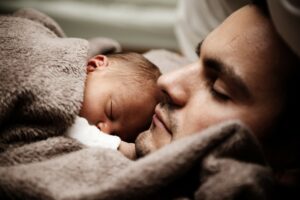
Reduce noise
Birmingham Women’s Hospital NHS Trust took part in a regional campaign to raise awareness of noise levels in Neonatal Units and the need to reduce noise. Led by Advanced Neonatal Nurse Practitioner Cheryl Lewis, the campaign highlighted the impact noise can have on babies. It included staff training, posters, badges, and the use of a Decibel Monitor in the Unit.
Neonatal Units can be very noisy places, with the amount of medical equipment, alarms, telephones, and people’s voices, and this can impact the babies’ development
Most babies in these units are premature and should be in the womb. They are not able to shut out the noise and this can be stressful, making it difficult for them to sleep. When babies can have a good quality sleep they are more stable and will grow more quickly.

Effects on the babies
In a noisy and busy environment, premature and sick babies are more physically unstable, sleep less, grow more slowly, and may have longer-term developmental problems such as poor concentration.
Quiet time for the babies is important, and noise levels can be stressful for staff and patients too. Actions to reduce noise must be taken. Analyze where all the sounds are, be critical, and think outside the box. What can be changed or altered? Can sound sources be moved or replaced? How do staff behave in the room? What is the level of conversations? What is the measured noise level inside the incubator – are there better brands?
Often a lot can be done to reduce noise by thoroughly go over the neonatal unit and being critical and really looking for ways to change. Call facility managers to make alterations if the door closing is too loud.

